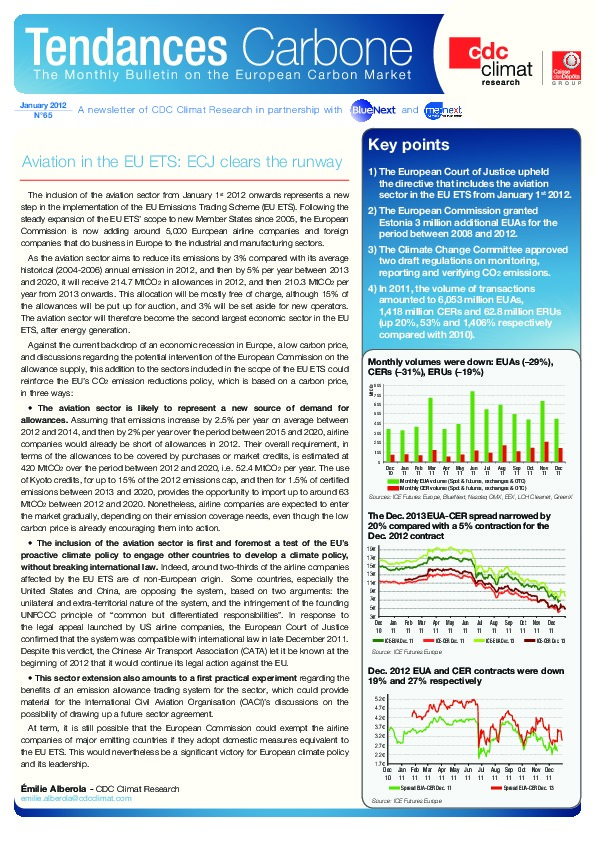Aviation in the EU ETS: ECJ clears the runway
By Emilie ALBEROLA
The inclusion of the aviation sector from January 1st 2012 onwards represents a new step in the implementation of the EU Emissions Trading Scheme (EU ETS). Following the steady expansion of the EU ETS’ scope to new Member States since 2005, the European Commission is now adding around 5,000 European airline companies and foreign companies that do business in Europe to the industrial and manufacturing sectors.
As the aviation sector aims to reduce its emissions by 3% compared with its average historical (2004-2006) annual emission in 2012, and then by 5% per year between 2013 and 2020, it will receive 214.7 MtCO2 in allowances in 2012, and then 210.3 MtCO2 per year from 2013 onwards. This allocation will be mostly free of charge, although 15% of the allowances will be put up for auction, and 3% will be set aside for new operators. The aviation sector will therefore become the second largest economic sector in the EU ETS, after energy generation.
